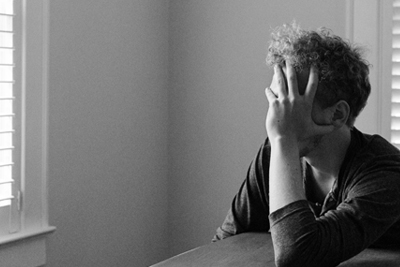RCBM Substance Abuse & Addiction Program
 Our Substance Abuse Dependency Program has been established to help the care of individuals struggling with addiction and the abuse of opiates, benzodiazepines, and alcohol. We are dedicated to helping those patients who have exhausted all options of treatment and are seeking help to recovery. RCBM offers a unique approach to work with these individuals because we understand that addiction is a disease and with the right tools and support, we can help patients find solutions. Our primary goals for treatment include:
Our Substance Abuse Dependency Program has been established to help the care of individuals struggling with addiction and the abuse of opiates, benzodiazepines, and alcohol. We are dedicated to helping those patients who have exhausted all options of treatment and are seeking help to recovery. RCBM offers a unique approach to work with these individuals because we understand that addiction is a disease and with the right tools and support, we can help patients find solutions. Our primary goals for treatment include:
- 1. Tapering off to Opiate-free by the end of treatment
- 2. Minimizing the use of benzodiazepines
Joel Young, MD and Aliya Pasik, PA-C oversee the Substance Abuse Dependency Program initiative at RCBM. Our team has a specialized background in the treatment and care of those suffering from addiction and abuse. RCBM is very dedicated to treating substance abuse disorders and mental illness and feels that giving someone the gift of sobriety is one of the greatest gifts you can give a person struggling with chronic addiction. Establishing a trusting relationship with patients is our priority at RCBM. Establishing a personalized treatment plan involves four steps.
1. The first step in the Substance Abuse Dependency Program is to make an appointment with one of the members of our team. At that first appointment, the patient will explain the details of the substance abuse and addiction that brings them to RCBM seeking help.
2. At the second step, the patient will be scheduled for a psychological evaluation and screening. This will provide a better indication of the presenting issues along with any historical information.
3. The third step involves results from the psychological screening and analysis of the data in order to develop a personalized treatment plan. Depending on the type of substance abuse, specific medications will be prescribed for treatment, which may include:-
1. Campral™ -- to help control cravings- 2. Vivitrol™ -- a new injectable medication with 30 days of coverage
- 3. Antabuse™ -- a powerful deterrent to drinking
- 4. Suboxone™--a medication for the treatment of opioid dependence
 4. The fourth and final step includes referral and coordination of care with one of our certified advanced alcohol and drug counselors who will also be involved in the patient's care. Dr. Young and Aliya will also determine an appropriate schedule for medication management and will consult with the patient’s primary care physician (PCP) regarding the treatment plan.
4. The fourth and final step includes referral and coordination of care with one of our certified advanced alcohol and drug counselors who will also be involved in the patient's care. Dr. Young and Aliya will also determine an appropriate schedule for medication management and will consult with the patient’s primary care physician (PCP) regarding the treatment plan.
Prior to every visit, we will run a MAPS (Michigan Automated Prescription System) to make sure patients are not receiving opiates or benzodiazepines from another provider. The safety of our patients is of utmost importance.
Our comprehensive program will give patients the structure and support they need to find a treatment option that is customized to their addiction. Take control of the addiction. Do not wait for the legal system to take control of it.
Program Director of Addiction Medicine












